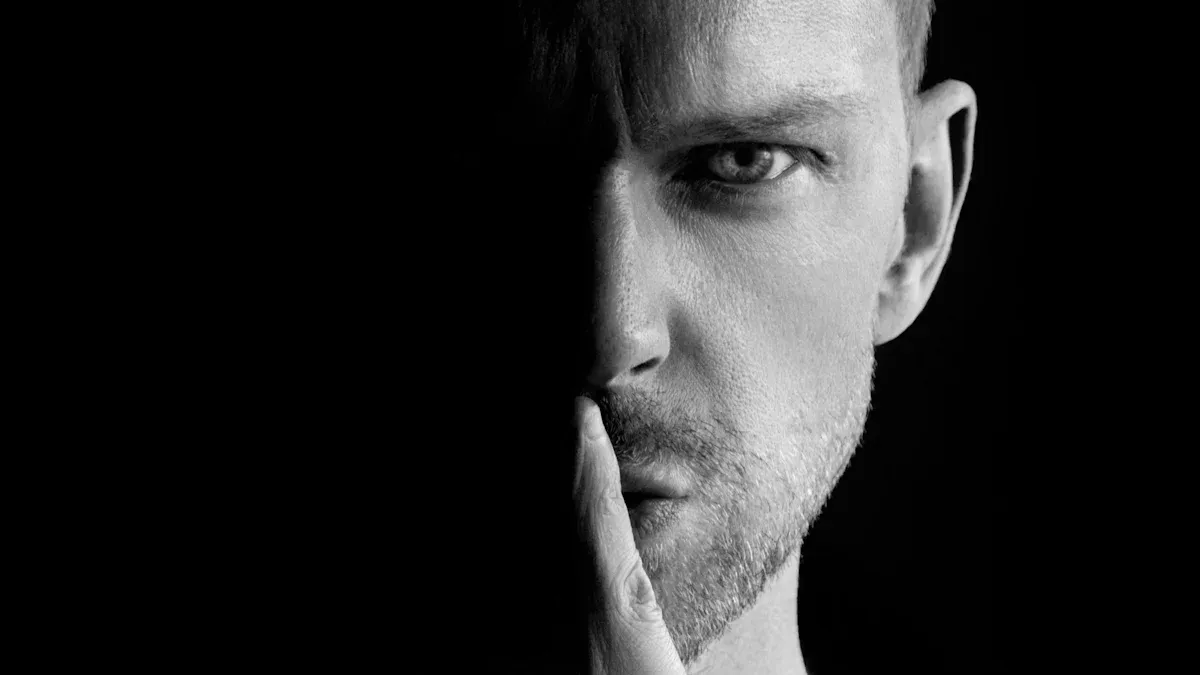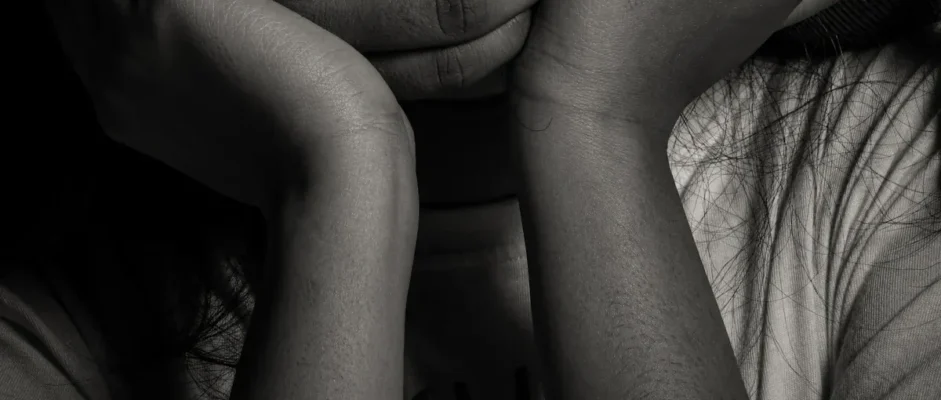Last updated on December 28th, 2025 at 02:21 am
Why are narcissists so cruel? Think about telling someone good news. Instead of being happy for you, they make fun of you or change what you said. This can make you feel sad and mixed up.
Narcissists act this way because they do not feel for others. They want to feel better than everyone else. They also act mean to hide how weak they feel inside. Narcissism is one of the “dark triad” traits. It is linked to being mean and bossy. People with narcissistic personality disorder often hurt others a lot.
TL;DR
Narcissists often do not feel empathy. This makes it hard for them to see how they hurt others.
A superiority complex makes narcissists put others down. They do this to feel better about themselves. Narcissists feel entitled and want special treatment.
They act mean when they do not get what they want. Narcissists use defense mechanisms to protect their self-image. They may split or shift blame to others.
Childhood trauma or poor parenting can cause narcissistic traits. Narcissists often trick others with gaslighting or emotional blackmail.
Knowing what triggers them, like criticism or jealousy, can help you. This helps you understand and protect yourself from their behavior.
Why Are Narcissists So Cruel

If you wonder, “Why Are Narcissists So Cruel,” you might think of someone who always makes you feel bad or changes what you say. Their meanness can feel like it is aimed at you, but it really comes from deep problems in their minds. Experts say narcissists do not hurt people just to be mean. Their actions come from how they think and feel, which makes it hard for them to care about others.
Psychological Roots
Lack of Empathy
You might see that narcissists do not really care about your feelings. They have a hard time seeing how their actions hurt you. Because they lack empathy, they can say mean things or ignore your pain.
Experts say this is a big reason for their cruelty. Dr. Elsa Ronningstam, a top researcher, says many people with narcissistic personality disorder (NPD) cannot see emotions in others. This makes them act cold or harsh.
Superiority Complex
Narcissists often think they are better than everyone else. This is called a superiority complex. It makes them put you down to feel strong. They might brag, make fun of you, or ignore your wins. Studies show this need to feel better is found in both grandiose and vulnerable narcissism. You might notice this when a narcissist laughs at your success or gets jealous when you are praised.
Entitlement
You may feel like narcissists think rules do not matter for them. They want special treatment and get mad if they do not get it. This feeling of entitlement can make them act mean, like taking credit for your work or blaming you for their mistakes. Studies show people with NPD often think they deserve more than others. This makes them act selfish and hurtful.
Experts say the link between narcissism and cruelty is complicated and comes from deep problems in their character. Narcissists may look like they are mean on purpose, but their actions come from deep issues, not just wanting to hurt others.
Table: Psychological Factors Linked to Narcissistic Cruelty
Factor | Type of Narcissism | Relationship |
|---|---|---|
Childhood Maltreatment | Vulnerable | Positive association; significant risk factor (Miller et al., 2011; Thomaes et al., 2013) |
Insecure Attachment | Vulnerable | Significant correlation (Crowe et al., 2016; Miller et al., 2011) |
Insecure Attachment | Grandiose | Mixed evidence; some studies show negative, others positive correlation (Nickisch et al., 2020) |
Defense Mechanisms
Narcissists use certain defense mechanisms to keep from feeling weak or ashamed. These defenses can make their cruelty even worse.
Splitting
You might see that a narcissist thinks people are either all good or all bad. This is called splitting. If you upset them, they may treat you like an enemy right away. This black-and-white thinking helps them avoid feeling weak, but it can make them act mean very quickly.
Object Constancy Issues
Narcissists often cannot remember you care about them when you are not there or when you disagree. This lack of “object constancy” means even small fights can make them get angry or stop showing love. You may feel like you have to be careful all the time because you never know when their mood will change.
Blame-Shifting
When something goes wrong, narcissists almost never say it is their fault. They blame you or others to protect how they see themselves. This can make you feel bad or confused, even if you did nothing wrong.
Table: Common Defense Mechanisms in Narcissistic Personality Disorder
Defense Mechanism Type | Examples |
|---|---|
Maladaptive | Projection, Splitting, Projective Identification |
Intermediate | Reaction Formation, Pseudo-Altruism, Turning Against the Self |
Adaptive | Humor, Anticipation, Suppression |
Projection: Narcissists might say you feel or do things that they really feel or do. This can make you question what is real.
Sadistic tendencies: Some narcissists, especially those with malignant traits, may even like causing pain and do not feel sorry for it.
Common Misconceptions About Narcissistic Cruelty
Many people think narcissists are cruel because they like hurting others. Most narcissists act this way because they feel very unsure of themselves and want to protect their self-esteem.
New studies (Miller et al., 2011; Crowe et al., 2016) show their cruelty often comes from childhood trauma or not feeling safe, not just because they are mean.
Note: People with Antisocial Personality Disorder (ASPD) are more openly and criminally cruel than those with NPD. Narcissists usually act out to protect how they see themselves, not just to hurt others.
Table: Comparing Cruelty in NPD and ASPD
Disorder | Pattern of Cruelty | Motivation |
|---|---|---|
NPD | Manipulation, emotional harm | Protect self-image, gain control |
ASPD | Rights violations, criminal acts | Disregard for others, personal gain |
You might also hear that all narcissists are the same. There are actually overt (grandiose) and covert (vulnerable) types. Overt narcissists are loud and bold, while covert ones may seem shy but still hurt others in quiet ways.
If you ask, “Why Are Narcissists So Cruel,” remember their actions come from a mix of deep problems and defense mechanisms. Knowing these patterns can help you stay safe and respond in a smart way.
Childhood and Development
Adverse Experiences
Poor Parenting
Early life can shape how someone acts. The way parents treat their kids matters a lot. If parents are too strict, kids may feel bad about themselves. If parents give too much, kids may expect too much from others. Both ways can make kids unsure about who they are.
They may always want others to like them. Harsh or cold parents can make kids feel unloved. Over-giving parents can make kids think they should always get what they want. Both types of parenting can cause problems with self-worth.
Trauma
Bad things in childhood, like abuse, can hurt deeply. Kids who go through trauma may make up stories in their minds to feel safe. This can lead to narcissistic behaviors later. When kids do not trust their caregivers, they may fear people who should care for them. This fear can make it hard to trust others. It can also make relationships hard and shaky.
Early Attachment Issues
Attachment problems start when kids are young. If parents are loving one day and mean the next, kids get confused. They do not know what to expect. This can make them feel unsafe and want to control things. Some kids may feel they deserve special treatment.
Studies show that kids with many bad experiences have a higher risk for mental health problems, including narcissistic personality disorder.
Kids who get mixed signals or are ignored by parents often have trouble understanding themselves and caring about others later.
Here is a table that shows how different bad experiences can affect narcissistic traits:
Type of ACEs | Impact on Narcissistic Traits |
|---|---|
Early childhood trauma | Contributes to narcissistic personality disorder |
Excessive criticism/overpraise | Relevant psychosocial risk factors for NPD |
Four or more ACEs | Higher chance of severe mental health outcomes |
Physical neglect, abuse | Direct effect on narcissistic traits |
Inconsistent parenting | Creates confusion and insecurities in self-perception |
Personality Formation
Emotional Regulation
Learning to handle feelings starts when you are young. If no one helps you with your feelings, you may have trouble with anger or sadness. This can cause you to act out or seem cold. People with narcissistic traits often have these problems. Genes, abuse, and unstable homes can all make it harder to manage emotions.
Self-Esteem Development
Self-esteem starts early in life. Too much praise can make you feel too important. Too much criticism can make you feel never good enough. Both can lead to a weak sense of self. You may always need others to make you feel better. Without fair feedback, you might become grand or feel very small inside.
Studies on NPD Origins
Long studies show that parenting style matters for narcissism. Parents who are fair and caring help kids feel good about themselves. Strict and cold parents can lead to unhealthy narcissism. Famous thinkers like Freud, Kernberg, and Kohut say early care shapes how you see yourself and others.
Findings | Parenting Style | Prediction of Narcissism |
|---|---|---|
Healthy, adaptive narcissism in young adulthood | Authoritative/Permissive | Positive predictor |
Unhealthy narcissism, feelings of inadequacy | Authoritarian | Negative predictor |
If you wonder why narcissists are so cruel, look at their childhood. Early life shapes how people see themselves and treat others. This sets the stage for how they act later.
Cruelty Traits

Narcissists use cruelty to get what they want. Their actions usually fit into two groups: manipulation and aggression. These behaviors can make you feel weak, mixed up, or unsure about what is real.
Manipulation
Narcissists use manipulation to keep control over you. They want to be in charge of the relationship. You might feel nervous or scared to upset them.
Gaslighting
Gaslighting is a trick narcissists use a lot. They change facts, say things did not happen, or blame you for their mistakes. You may start to wonder if your memory is right. This is not just a mistake. Gaslighting is done on purpose to make you doubt yourself.
Narcissists use gaslighting to control people close to them.
You might feel lost or unsure about what is true.
They often say things did not happen or blame others.
Gaslighting can make you question your own mind.
Emotional Blackmail
Emotional blackmail is when a narcissist uses your feelings against you. They might say they will leave, stop caring, or make you feel bad if you do not listen to them. You could feel stuck or afraid to speak your mind.
Control Tactics
Narcissists use many tricks to stay in control. They might:
Pretend to be the victim to get others to feel sorry for them.
Give you lots of attention at first to make you trust them.
Ignore you to punish you.
Start fights between you and other people.
Tell lies about you to hurt your good name.
These tricks can make you feel alone or unsure about yourself. Narcissists want you to depend on them and forget your own value.
Common Manipulation Behaviors in NPD
Manipulation Behavior | Description |
|---|---|
Willingness to exploit others | Narcissists may use others to boost their own status. |
Need for admiration | They seek constant praise and may manipulate to get it. |
Lack of empathy | They ignore your feelings and focus only on their needs. |
Aggression
Aggression is another way narcissists show cruelty. You might see this in what they say or do.
Verbal Attacks
Narcissists use mean words to hurt you. They may insult you, make fun of you, or put you down in front of others. These words can make you feel bad about yourself.
Public Humiliation
Some narcissists embarrass you in front of people. They might tell your secrets, make jokes about you, or point out your mistakes. This makes them feel strong and in charge.
Patterns in Abuse
You might see a pattern in how they act. At first, they are nice or loving. If you do something they do not like, they get angry or cold. This keeps you guessing and makes you try harder to make them happy.
Aggressive Behaviors in NPD
Aggressive Behavior | Description |
|---|---|
Interpersonal volatility | Sudden mood changes that lead to fights or arguments. |
Poor distress tolerance | Quick to anger when stressed, often leading to outbursts. |
Help-rejecting behaviors | Refusing help but still showing anger or distress. |
Narcissists can also break rules or act out, especially if they feel in danger.
You can help yourself by learning to spot these signs. Knowing about manipulation and aggression is the first step to keeping yourself safe.
Triggers and Patterns
Narcissists react in strong ways when they feel threatened. You can often see these patterns when you give feedback or when their status feels shaky. Knowing these triggers helps you spot warning signs and keep yourself safe.
Criticism
Sensitivity
Narcissists have a weak self-image. Even small comments can feel like big attacks. When you give feedback, they may think you are hurting their worth. This makes them get angry or act defensive very fast.
Key Points | Description |
|---|---|
Threat to Self-Image | |
Narcissistic Rage | They may explode with anger, known as narcissistic rage. |
Defense Mechanisms | They use tricks like blaming others to protect their ego. |
Lack of Empathy | They do not care how their words hurt you. |
Manipulation | They twist criticism to control the story and keep power. |
Hostile Reactions
If you criticize a narcissist, they may lash out at you. They might attack who you are, not just what you did. Their words can feel mean and never seem to stop. You may feel like you can never do things right for them.
Characteristics of Narcissistic Criticism | Description |
|---|---|
Personal Attacks | They target who you are, not just what you do. |
Continuous Negative Focus | Their words stay negative and rarely stop. |
Unattainable Expectations | They set goals you cannot reach, making you feel small. |
Projection
Narcissists often blame you for things they do themselves. If they feel unsure, they may say you are the one with problems. This trick, called projection, helps them avoid their own mistakes.
Emotional Responses | Description |
|---|---|
Anger and Defensiveness | They get mad and try to defend themselves. |
Feelings of Inadequacy | Criticism makes them feel not good enough. |
Use of Defense Mechanisms | They blame others or make excuses to protect themselves. |
Status Threats
Jealousy
Narcissists want to be the best at everything. When you do well or get praise, they may feel jealous. This jealousy can turn into anger or mean actions. You might see them try to make your wins seem less important or take credit for your work.
Competition
You may feel like you are always in a contest with them. Narcissists see others as rivals, not friends. If you challenge their ideas or skills, they may react with harsh words or actions. Their need to win can make them act in mean ways.
Rage Cycle
When narcissists lose status or fail in public, they feel bad about themselves. This can cause what experts call a “narcissistic collapse.” During this time, they may act out in cruel ways to get back control. Their rage often comes from feeling jealous, losing, or being criticized.
Common Triggers for Narcissistic Rage:
Failure or setbacks
Criticism or rejection
Loss of control
Challenges to authority
Studies show that jealousy and competition make this rage cycle worse. When narcissists feel envy or shame, they may get angry or act out. This keeps happening, so being around them can feel stressful and scary.
If you see these patterns, remember: their actions show their own struggles, not yours.
Conclusion
Narcissists act mean because they do not care about feelings. They want people to admire them. When someone hurts their pride, they get angry fast.
They hurt others to feel better than them. They do not follow rules.
Their actions can make you feel bad about yourself. You may have trouble trusting people. You might even get sick from stress.
“They can hurt others and not feel sorry. They may not know how their actions affect people.”
If you know why narcissists act this way, you can protect yourself. Their meanness comes from their own problems, not because you did something wrong.
Frequently Asked Questions
Why do narcissists seem so mean to people close to them?
You may notice narcissists act cruelest to those they know best. They feel safest showing their anger or jealousy at home. This behavior often comes from deep insecurity, not true hate.
Why do narcissists blame others for their actions?
Narcissists blame others to protect their self-image. They do not want to feel weak or wrong. This defense helps them avoid guilt or shame.
Do narcissists know they are being cruel?
Many do not see their actions as cruel. They focus on their own needs. Some may notice the pain they cause, but most do not feel sorry.
Is narcissistic cruelty always intentional?
Not always. Sometimes, narcissists act out without thinking. Their need to protect themselves can make them act mean, even if they do not plan it.
